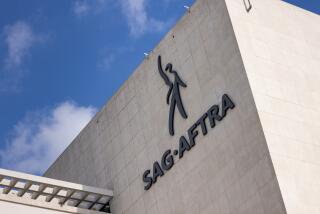Panel OKs Stricter Area Code Rules
- Share via
A state Senate committee has approved legislation that would place stricter controls on area code splits and overlays, such as those being proposed for the 818 area code.
The decision Tuesday by the Senate Energy, Utilities and Communications Committee could change the way telecommunications companies operate in California. The tighter provisions to the Area Code Relief Act, Assembly Bill 818, were approved on an 8-1 vote.
The amended legislation calls for a ban on future area code splits and overlays and would create a single area code for fax machines, computer modems, cellular phones, pagers, ATMs and other electronic devices requiring telephone lines.
It also calls for a reduction in the amount of phone numbers the state Public Utilities Commission can assign to telephone companies from blocks of 10,000 to 1,000 at a time.
The proposed measure orders a reversal of the 310 area code overlay and 11-digit dialing in the West Los Angeles geographical area, where consumers have been angered by having to dial 11 digits for local calls since April.
“The committee’s decision was a major step toward significant reform of the area code debacle in California,” said Assemblyman Wally Knox (D-Los Angeles), who introduced the bill in the Assembly and spoke before the committee Tuesday.
Representatives from Pacific Bell, GTE and other telecommunications providers urged the committee to reject the legislation, arguing that area code overlays and splits are necessary to cope with soaring demand for new phone lines.
“A moratorium without area code relief hurts customers in need of phone numbers,” said Steve Getzug, a Pacific Bell spokesman. “In the 310 area code, there are some customers who are already feeling the pinch because we don’t have the numbers in the volume that some mid-size to big businesses need.”
But their appeals did not sway the 11-member committee. Eight members approved the legislation, one rejected it, one abstained and another member was absent.
“We are not convinced that all the numbers assigned to telephone companies have been exhausted,” said state Sen. Richard Alarcon (D-Sylmar), a committee member. “We are not sure that the method specified--an overlay--is reasonable or if the industry, PUC and FCC have considered alternatives.”
The legislation now goes before the Senate Appropriations Committee. If approved, the bill would go to the full Senate and be returned to the Assembly for a final review before being sent to Gov. Gray Davis.
“We will abide by what will ultimately become law,” said Kyle DeVine, a state public utilities spokeswoman. “But there have been so many changes to this bill that it would be inappropriate to make comments until we see the final outcome.”
State regulators are expected Aug. 5 to consider an area code overlay in the 818 calling area that covers the San Fernando Valley.
Under the overlay proposal, all new phones in Valley homes and businesses would get the new area code, with the actual three-digit number to be determined later.
Also, callers in the 818 area would have to dial the 818 code to other 818 phones--even if those phones are in the same building or next door.
A coalition of telecommunications companies, including Pacific Bell, GTE and MCI are pushing for the changes, saying either an overlay or a new geographic area code is necessary to accommodate a demand for more telephone lines.
Before an overlay can be implemented, the five-member PUC would require telecommunications company executives to submit documentation supporting their contention that there is a pressing demand for new numbers in the 818 area code, DeVine said.
The 818 proposal comes on the heels of a 310 area code overlay that was scheduled to take effect Saturday. The plan was suspended last month because of public opposition, but Westside businesses and residents continue to have to dial 11 digits for local calls.
More to Read
Sign up for Essential California
The most important California stories and recommendations in your inbox every morning.
You may occasionally receive promotional content from the Los Angeles Times.










